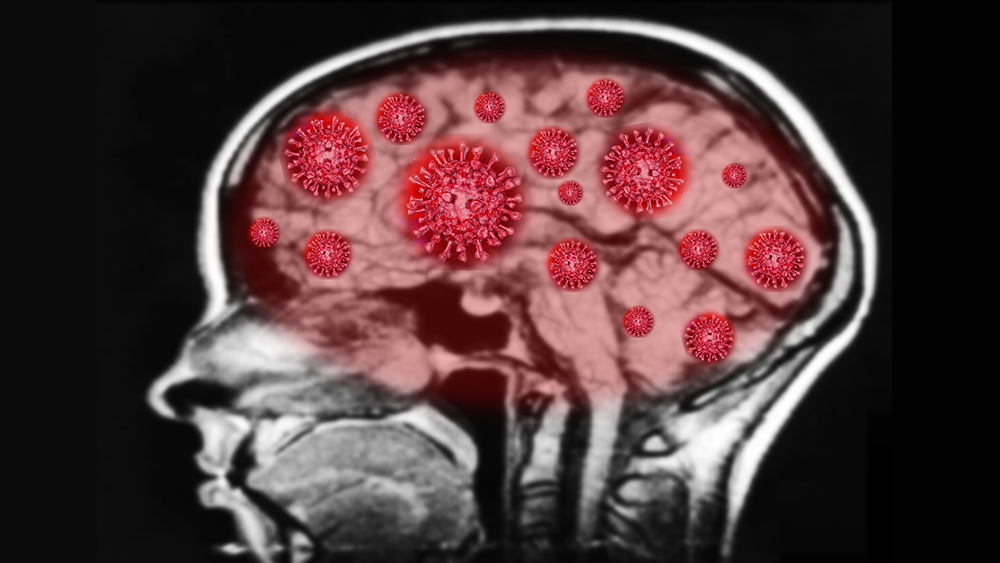
An online risk calculator could help doctors predict, and hopefully prevent, brain-related complications in COVID-19 patients.

An online risk calculator could help doctors predict, and hopefully prevent, brain-related complications in COVID-19 patients.
What you need to know
An NIH-funded study is developing an online risk calculator to help doctors predict which COVID-19 patients will develop brain-related complications. The study will also look at how COVID-19 causes these complications.
What is this research about?
Scientists and doctors do not fully understand how COVID-19 causes problems with the brain or why these problems occur in some patients and not others. In this new study, researchers from the Cleveland Clinic will use tools that they developed from earlier NIH-supported projects to study how COVID-19 affects the brain. They will focus on fatigue, headaches, loss of smell or taste, and memory loss, or “brain fog.” They will also look at more serious but less common complications, such as epilepsy and stroke.
What are the researchers doing?
The researchers are analyzing data from the hospital records of thousands of patients who tested positive for COVID-19 and were enrolled in the Cleveland Clinic COVID-19 Registry and Biobank. These records have information on a patient’s age, race and ethnicity, and social determinants of health, which are the conditions in a person’s environment that can affect health and wellbeing. The hospital records also include a patient’s COVID-19 symptoms and how seriously ill the patient was, and whether the patient smokes or has serious health conditions such as cancer, diabetes, heart disease, and high blood pressure.
The researchers will first find out how many of these patients developed problems with the brain while they had COVID-19 or after they recovered. They will then use computer programs to compare patient information and find out whether problems with the brain are more common in any specific group of patients. They will also find out whether any combination of factors increased the risk of problems with the brain. The researchers will use this information to develop a new computer program that predicts whether new patients are more likely to have problems with the brain based on their own demographic and health information.
The researchers plan to expand the study to include health information from large datasets at the Mayo Clinic and the University of Campinas in Brazil. This will help ensure that the risk calculator is accurate for diverse groups and can be used globally.
Why is this research important?
An effective online risk calculator and information on how COVID-19 affects the brain could help doctors predict and possibly prevent neurological complications in people who have COVID-19. The researchers plan to develop risk calculators for other short- and long-term complications of COVID-19 to help improve medical care for this disease.
Where can I go to learn more?
- Learn more about this project from Cleveland Clinic.
Taking a Closer Look at COVID-19’s Effects on the Brain.
- In this blog post, NIH Director Francis Collins, M.D., Ph.D., discusses research by NIH scientists to better understand how COVID-19 affects brain function.
Neurological Complications of COVID-19 and NINDS Clinical Research.
- In this video, Avindra Nath, M.D., of the National Institute of Neurological Disorders and Stroke (NINDS) discusses how COVID-19 affects the brain.
NIH Launches Database to Track Neurological Symptoms Associated with COVID-19.
- Read about NIH’s database for tracking how COVID-19 affects the brain, spinal cord, and nerves.
- Read about research by NIH scientists designed to better understand how COVID-19 affects the brain.
- Find out more about COVID-19 and opportunities to participate in clinical trials.
Sources
Jehi, L. (2020). A nomogram to predict seizure outcomes after resective epilepsy surgery. NIH RePORTER. Retrieved February 8, 2021, from https://reporter.nih.gov/project-details/10181321#description
Cleveland Clinic. (2020). Neurological complications of COVID-19 are focus of new NIH grant supplement to Cleveland Clinic researchers. Retrieved February 8, 2021, from https://consultqd.clevelandclinic.org/neurological-complications-of-covid-19-are-focus-of-new-nih-grant-supplement-to-cleveland-clinic-researchers/

News and Stories
Read stories about the efforts underway to prevent, detect, and treat COVID-19 and its effects on our health.
 An official website of the United States government
An official website of the United States government

